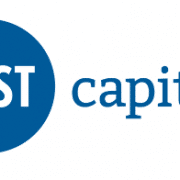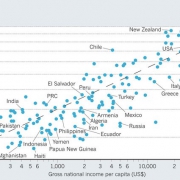A Long Term Fix for Our Short Term Focus on Corporate Culture and Profits
 In a society and culture that emphasizes the new and the now what does it mean to manage for the long term? If we want what we want when we want it, businesses that take a multi-year perspective may be misaligned with modern expectations by shareholders to maximize profits, almost immediately.
In a society and culture that emphasizes the new and the now what does it mean to manage for the long term? If we want what we want when we want it, businesses that take a multi-year perspective may be misaligned with modern expectations by shareholders to maximize profits, almost immediately.
Today’s businesses have morphed into revenue generators designed to squeeze every ounce of productivity and profit from its people and operations. Many corporate leaders see their role as the facilitator of shareholder enrichment. Coupled with a culture of instant gratification, it is not that shocking to see the reinforcement from the field as to what it means to be a successful enterprise.
However, a new article in Harvard Business Review by authors Joseph Bower and Lynn Paine of Harvard Business School argues that the entire basis for the popularity of shareholder primacy is deeply flawed and that its growing reliance excludes real opportunities for sustained growth and imperils the broader economy.
In relating the history of how we got here, Bower and Paine first explain how agency theory, which has been the predominant model for managing the inherent conflict between the unaligned goals and risk appetite between the principals (the shareholders in a corporation) and their agents (the managers), has, in their view been grounded on a faulty premise. The problem is that “agency theory has yet to grapple with the implications of the accountability vacuum that results from …its central premise that shareholders own the corporation.” They then go on to describe the consequences of reliance on this faulty model:
“Over the past few decades the agency model has provided the rationale for a variety of changes in governance and management practices that, taken together, have increased the power and influence of certain types of shareholders over other types and further elevated the claims of shareholders over those of other important constituencies—without establishing any corresponding responsibility or accountability on the part of shareholders who exercise that power. As a result, managers are under increasing pressure to deliver ever faster and more predictable returns and to curtail riskier investments aimed at meeting future needs and finding creative solutions to the problems facing people around the world.”
After a comprehensive review of why shareholder primacy is a flawed model, the authors center on a company-centric governance model in which they expect to see some or all of these features:
- a staggered board to facilitate continuity and the transfer of institutional knowledge
- more board-level attention to succession planning and leadership development
- more board time devoted to strategies for the company’s continuing growth and renewal
- closer links between executive compensation and achieving the company’s strategic goals
- more attention to risk analysis and political and environmental uncertainty
- a strategic (rather than narrowly financial) approach to resource allocation
- a stronger focus on investments in new capabilities and innovation
- more-conservative use of leverage as a cushion against market volatility
- concern with corporate citizenship and ethical issues that goes beyond legal compliance
Their new ways of conceptualizing corporate strategy underscores the health and permanence of the organization as prime drivers of an approach that values adaptability and nimbleness in the face of social change. The ability to pivot is key. However, that capacity can be restricted by demands from shareholders that push for stock price targets, hiring and layoff requests, performance baselines and other levers that may negatively impact long-term growth.
One of the most relevant points in their list of improvements to the shareholder primacy model is to rely on internal ethical standards to “guide interactions with constituencies, including shareholders and society at large.” They argue, much as we do, that ethics pays and that a strong ethical culture and regulation can together obviate misconduct in organizations, and that the enhancement of reputation through building trust is an excellent way to guarantee ongoing success.
In short, a long-term focus is needed to shift from an agency based governance model to one that opens up more capital, time and attention towards long-term management of corporate “innovation, strategic renewal and investment in the future.” Without this shift, we leave our companies and the larger economy open to the same pitfalls and breaches that have previously cratered markets and imperiled the secure future of millions of Americans.
Further Reading:
- An article in The Atlantic on The Aspen Institute’s American Prosperity Project, an initiative to encourage companies and the nation to engage in more long-term thinking [Article]
- MBA: Means Being Aware to Short-Termism [ES blog]









